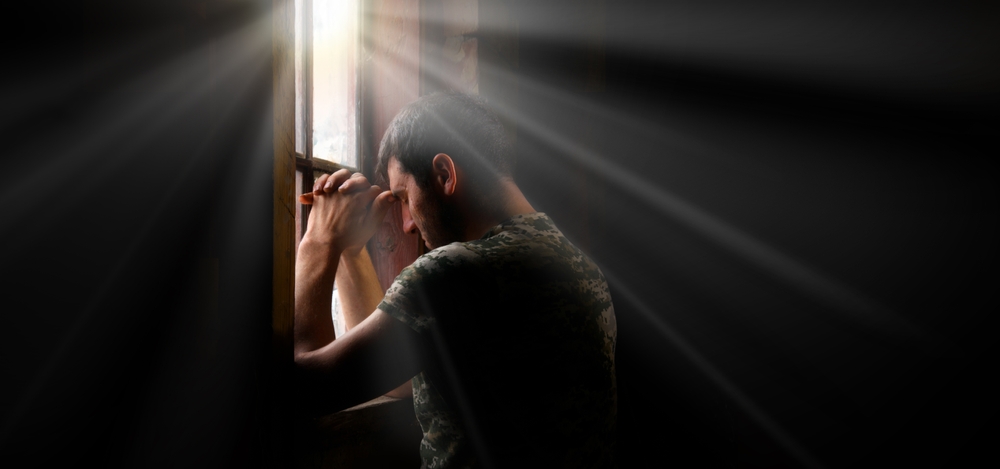You’ve just ticked off a major item on your bucket list. Maybe you’ve jumped out of a plane, met your celebrity crush, or finally visited that dream destination. You should be over the moon, right? But instead, you’re feeling… well, kind of “meh.” Don’t worry, you’re not broken, and you’re definitely not alone. Let’s talk about some reasons why you might be feeling underwhelmed after doing something that’s supposed to be thrilling.
1. The good old hedonic treadmill

Ever heard of the hedonic treadmill? It’s not a fancy piece of gym equipment, but a psychological phenomenon that might explain your “meh” feelings. Essentially, it’s our brain’s annoying habit of quickly returning to a relatively stable level of happiness despite major positive or negative events. Here’s how it works: You experience something awesome, your happiness spikes, but then your brain goes, “Okay, cool, but what’s next?” This rapid return to baseline can leave you feeling surprisingly blah after a peak experience. It’s not all bad, though. It also helps us bounce back from negative experiences.
2. You have unrealistic expectations

We live in a time when Instagram filters and carefully curated social media posts run rampant. Maybe you’ve seen countless photos of people having the “time of their lives” doing the very thing you just did, and now you’re wondering why you don’t feel the same level of ecstasy. The truth is, reality often has a hard time living up to our imagination. That tropical beach might be beautiful, but it doesn’t magically solve all your problems. That rollercoaster might be thrilling, but it doesn’t fundamentally change who you are as a person.
3. You crash from all the adrenaline

If your exciting experience involved any kind of adrenaline rush—like skydiving, public speaking, or winning a competition—your “meh” feeling might be a physiological response rather than an emotional one. Adrenaline is a powerful hormone that prepares your body for “fight or flight.” It increases your heart rate, boosts your energy, and sharpens your senses. But what goes up must come down. After the adrenaline wears off, you might experience fatigue, irritability, or a general sense of letdown. It’s like your body’s way of saying, “Whew, glad that’s over. Time for a nap.”
4. You suffer from the arrival fallacy

Ah, the arrival fallacy or the belief that when you arrive at a certain destination (literal or metaphorical), you’ll finally be happy. “I’ll be happy when I get that promotion.” “I’ll be happy when I visit Paris.” “I’ll be happy when I run a marathon.” The problem is, happiness doesn’t work like that. When we achieve a goal or have an exciting experience, we might feel a brief surge of happiness, but it doesn’t fundamentally change who we are or solve all our problems. If you’ve been building up an experience in your mind as the thing that will finally make you happy, the reality can feel disappointing.
5. You compare it to past experiences

Our brains love to play the comparison game, and sometimes, it’s not in our favor. Maybe this exciting thing you just did was objectively cool, but it didn’t quite measure up to a similar past experience. For example, maybe you just went to a great concert, but you can’t help comparing it to that mind-blowing show you saw five years ago. Or perhaps you just visited a beautiful city, but it doesn’t quite capture the magic of your favorite travel destination. These comparisons can dull the shine of your current experience, leaving you feeling less excited than you “should” be.
6. You’re emotionally exhausted

Excitement, while positive, is still an intense emotion. If you’ve been hyped up about something for a long time, or if you’ve been through a series of exciting experiences, you might simply be emotionally drained. Imagine emotions as a bank account. Intense experiences, even positive ones, make big withdrawals. If you’ve overdrawn your emotional account, you might not have the energy to feel as excited as you think you should.
7. You keep asking yourself “Is this it?”

You’ve built up an experience so much in your mind that when it actually happens, a little voice in your head goes, “That’s it? That’s what all the fuss was about?” This doesn’t necessarily mean the experience wasn’t worthwhile or enjoyable. It’s more about the gap between our expectations and reality. We often expect peak experiences to be transformative or life-changing, and when they’re simply enjoyable but not earth-shattering, we can feel a sense of letdown.
8. You don’t know what to do next

Sometimes, the letdown comes not from the experience itself, but from the sudden lack of anticipation afterward. If you’ve been looking forward to something for a long time, the excitement of anticipation can be a source of joy in itself. Once the event is over, you might feel a bit lost or empty, wondering, “Now what?” After the wedding, after the graduation, after the big trip—there can be a sense of aimlessness that can be mistaken for feeling underwhelmed about the event itself.
9. You’re dealing with “the spotlight effect” hangover

Ever heard of the spotlight effect? It’s our tendency to overestimate how much other people notice about us. So, you’ve just come back from climbing Kilimanjaro or meeting your favorite author, and you’re ready to regale everyone with tales of your amazing experience. But instead of the awed reactions you expected, you get a few “cool” responses and then everyone moves on to discussing last night’s game or what to have for lunch. This disconnect between our expectations of others’ reactions and reality can leave us feeling deflated.
10. You’re too much of a high achiever

Sometimes, we feel “meh” after doing something exciting because we’re just too darn good at it. I know, I know, it sounds like a humble brag, but hear me out. When we become very skilled at something, our brain starts to automate the process. It’s great for efficiency, but not so great for excitement. Think about the first time you drove a car—it was probably thrilling, maybe a little scary. But now? It’s just another Tuesday commute. This “curse of competence” can dull our emotional response to experiences that would thrill others.
11. You’re a victim of social media

With Instagram and TikTok, we’re constantly bombarded with images and videos of people having AMAZING! INCREDIBLE! LIFE-CHANGING! experiences. So instead of fully enjoying your exciting experience, you find yourself thinking about how to capture it for social media. You’re mentally composing captions, thinking about hashtags, and wondering which filter will make this sunset look as spectacular as it should feel. And then, even if you do share it, there’s the waiting game. Refreshing your feed, checking for likes and comments. Suddenly, the experience itself takes a backseat to its social media representation.
12. You’re an introvert at heart

So, you’ve just done something that should be thrilling, but instead of feeling exhilarated, you feel… exhausted. Depleted. In need of a good book and some alone time. This isn’t because the experience wasn’t good, but because the very things that make it exciting for many people are the things that tap out an introvert’s energy reserves. If this sounds familiar, it doesn’t mean you can’t enjoy exciting experiences. It just means you might need to build in some decompression time.
13. You’re suppressing your negative emotions

Here’s a tricky one: sometimes we feel “meh” because we’re suppressing other, less positive emotions. Maybe that exciting thing you did also made you a little anxious, sad, or even angry. But because you think you “should” be happy, you push those other feelings aside. The result? A muted emotional response that feels like “meh.”
Enjoy this piece? Give it a like and follow PsychLove for more!








